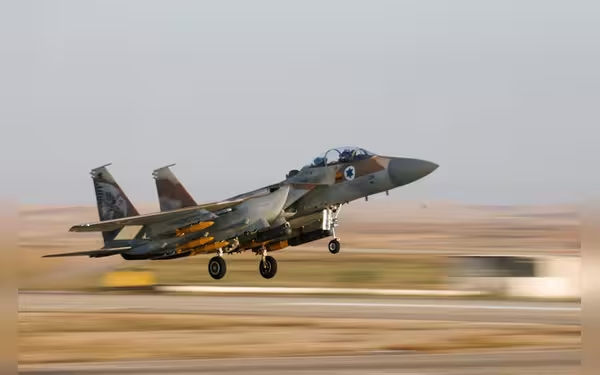Monday, December 23, 2024 01:28 PM
Biden Administration Approves $680 Million Arms Sale to Israel
- Biden administration advances $680 million arms sale to Israel.
- Concerns raised over humanitarian crisis in Gaza amid military support.
- Senate rejects legislation to block arms sales to Israel.
 Image Credits: arabnewspk
Image Credits: arabnewspkBiden administration moves forward with $680 million arms sale to Israel amid ongoing Gaza conflict and humanitarian concerns.
In recent developments, the Biden administration is moving forward with a significant arms sales package to Israel, valued at $680 million. This decision comes at a time when a US-brokered ceasefire between Israel and Hezbollah has just taken effect in Lebanon. The arms package, which includes thousands of joint direct attack munition kits (JDAM) and hundreds of small-diameter bombs, has been in the planning stages for several months. It was first presented to congressional committees in September and submitted for review in October.
This arms deal follows a previous $20 billion sale in August, which included fighter jets and other military equipment. Since the onset of the Gaza conflict in October 2023, the United States, as Israel's primary ally and weapons supplier, has reportedly sent over 10,000 highly destructive 2,000-pound bombs and thousands of Hellfire missiles to Israel. This escalation in military support has raised concerns among some US lawmakers, particularly progressive senators like Bernie Sanders, who have attempted to introduce resolutions aimed at blocking certain arms sales to Israel due to the ongoing humanitarian crisis faced by Palestinians in Gaza.
Despite these concerns, the legislation to halt the arms sale was rejected in the Senate. President Biden has consistently expressed strong support for Israel, especially following the Hamas-led attacks in October 2023, which resulted in the deaths of approximately 1,200 individuals and the abduction of over 250 hostages. The situation in Gaza remains dire, with a population of 2.3 million people facing displacement and the looming threat of famine. Health officials in Gaza report that more than 43,922 Palestinians have lost their lives due to Israel's military actions.
The ongoing conflict and the recent arms sales raise important questions about the balance between national security interests and humanitarian responsibilities. As the situation evolves, it is crucial for the international community to remain vigilant and advocate for peace and stability in the region. The implications of these military transactions extend beyond immediate geopolitical concerns, affecting the lives of countless individuals caught in the crossfire. Understanding the complexities of such decisions is essential for fostering a more informed and compassionate global dialogue.













